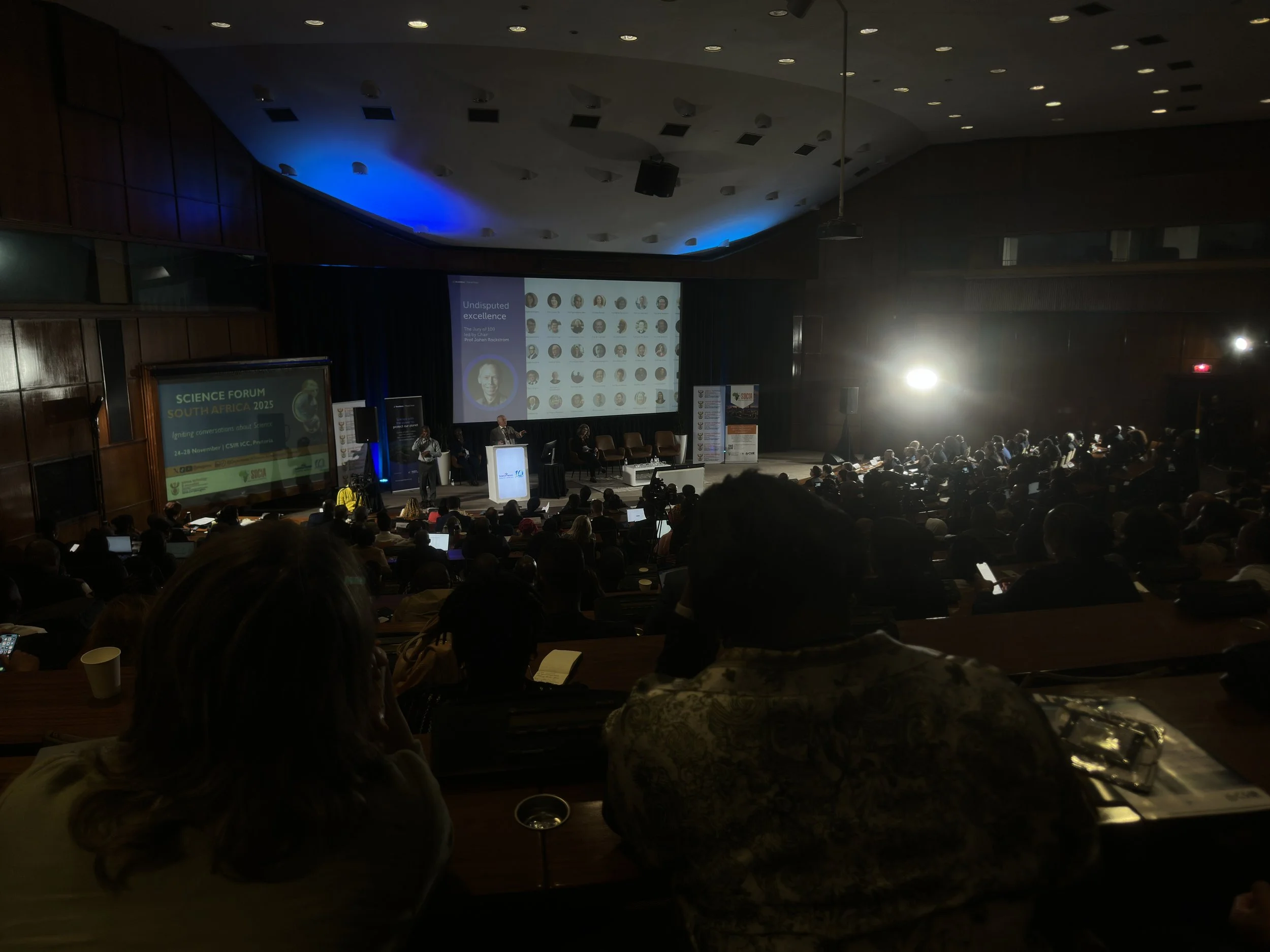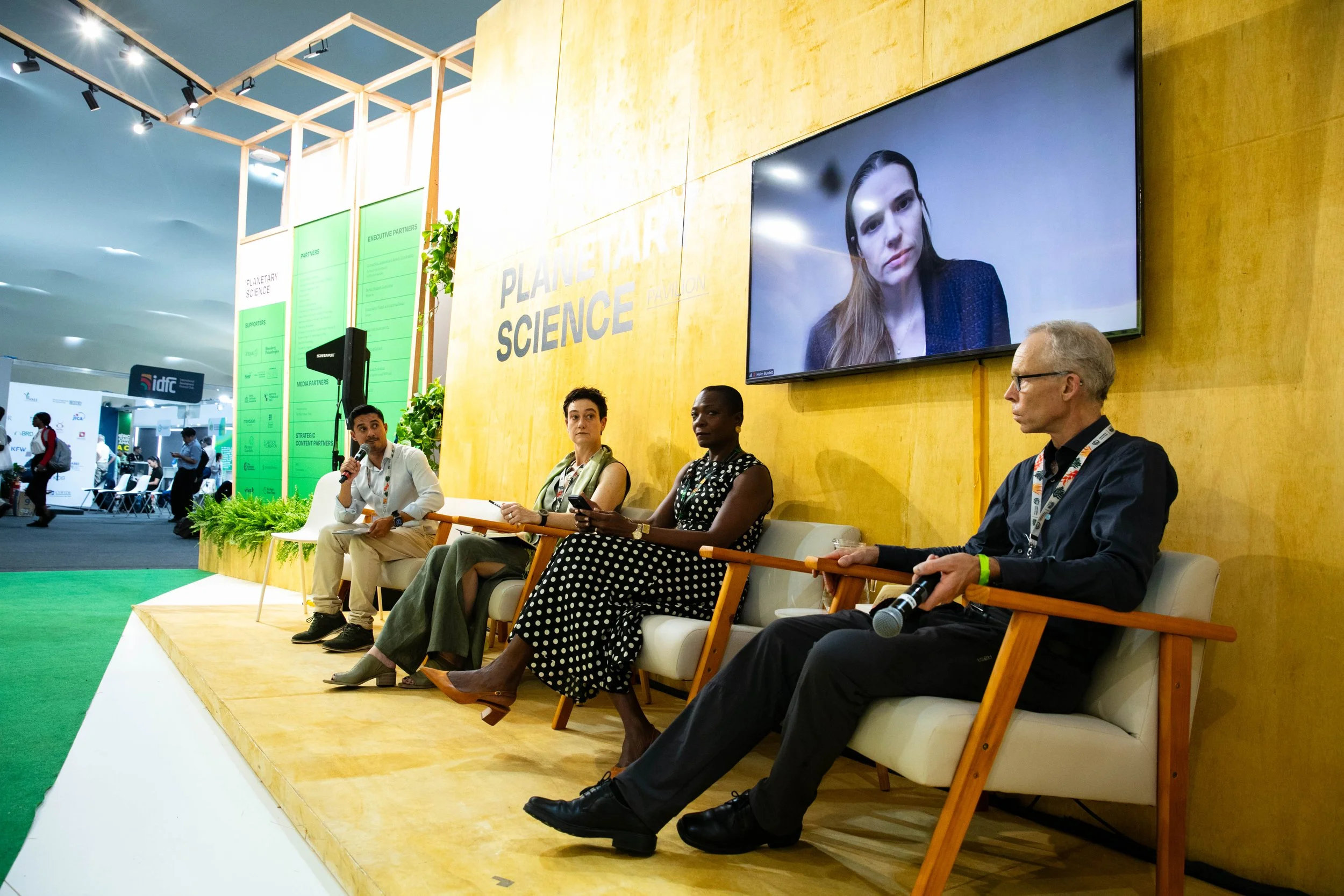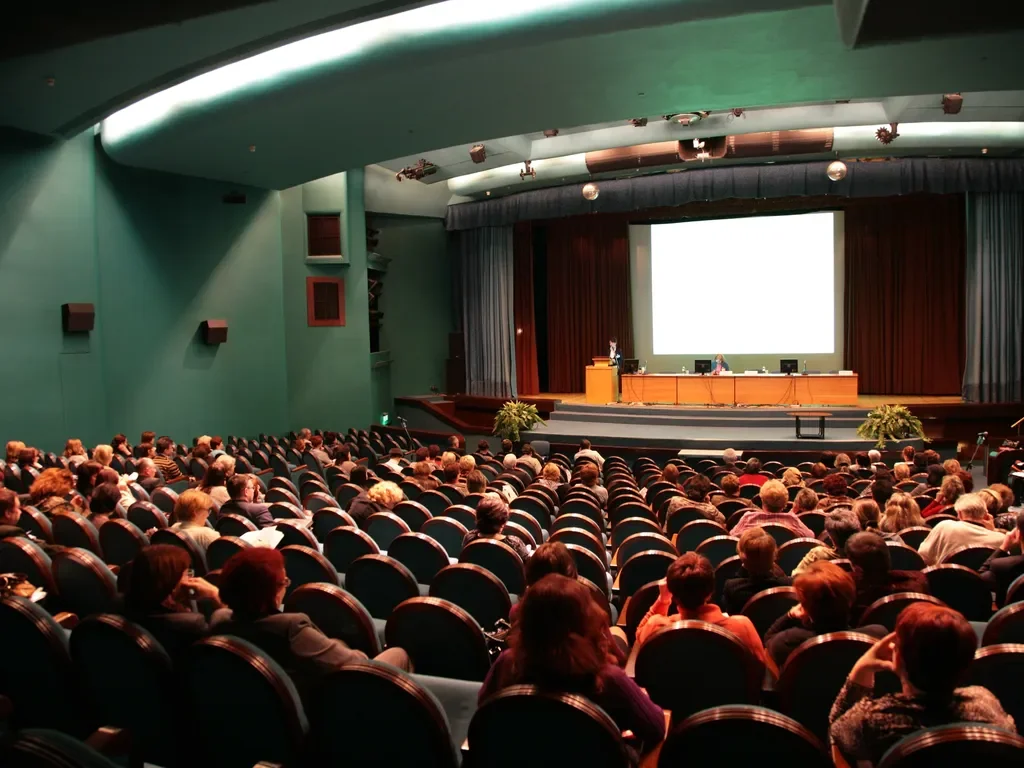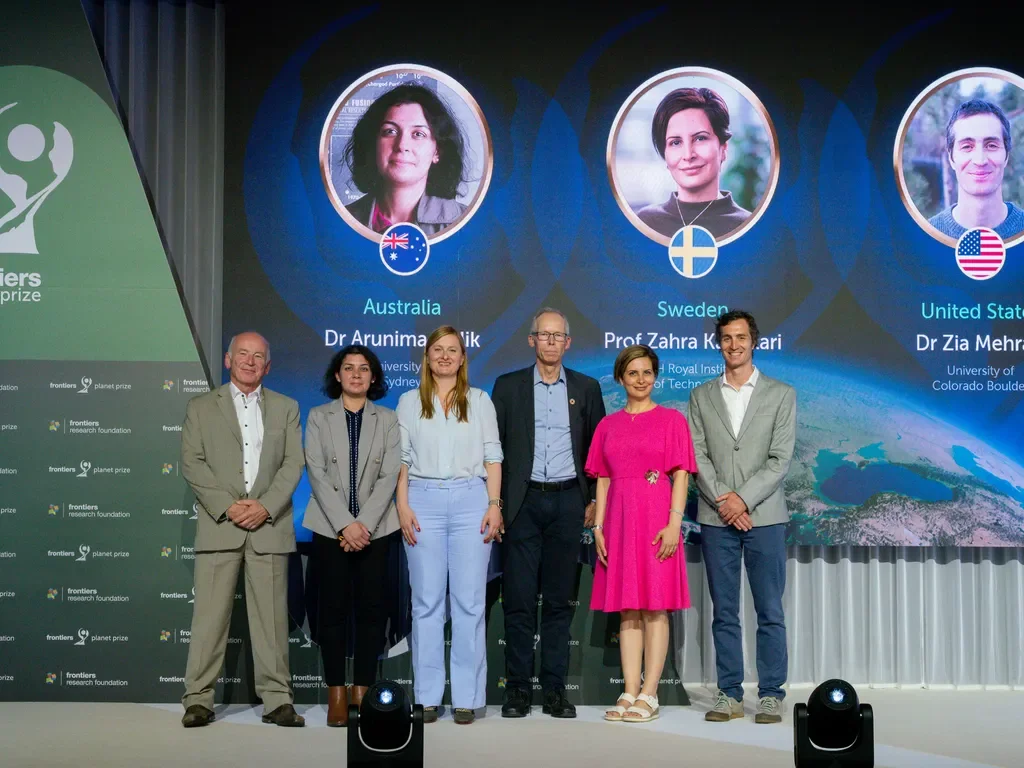News on the Frontiers Planet Prize
Geneva Environment Network: Recognizing the Champions of the Earth
This overview from the Geneva Environment Network brings together leading global flagship awards, thematic environmental prizes, and Swiss-based initiatives that recognise those working towards a healthier, more resilient, and more just planet. The Frontiers Planet Prize is featured within the Global Flagship Environmental Awards section, reflecting its role in elevating science-driven solutions for planetary health.
Science Forum South Africa: African Planet Prize
Science Forum South Africa 2025 is a landmark event dedicated to reinvigorating global discourse on science, technology and innovation. Held from 24–28 November 2025 at the CSIR International Convention Centre in Pretoria, the Forum brought together thousands of scientists, innovators, policymakers and civil society leaders from across the continent and beyond.
Our Global Network Mobilised: The Fourth Edition in Focus
The Frontiers Planet Prize has entered its fourth edition with great momentum, a sign not only of the growing global urgency around planetary stability, but of the scientific community’s readiness to deliver actionable solutions at scale. What began as a bold initiative for planetary science has expanded into the world’s largest prize in scientific solutions for planetary health.
COP30: Award-winning Solutions Restoring Amazonian Ecosystems
This session explored how the Frontiers Planet Prize, the world’s largest science competition in planetary health and Earth system science, is identifying and accelerating breakthrough research with tangible solutions for humanity to live safely within planetary boundaries.
COP30: Emerging Technology Solutions for Planetary Health
For the first time in its 14-year history of publishing emerging-technology forecasts, the World Economic Forum has produced a report explicitly focused on planetary health. In partnership with the Frontiers Planet Prize and Frontiers, the World Economic Forum pulled together expert networks from its Global Future Council to tap into the technical and scientific expertise of the FPP community.
COP30: Mobilizing Science for Planetary Impact
Frontiers Planet Prize at COP30, in collaboration with SwissNex: ‘Mobilizing science for planetary impact: from breakthroughs to transformations.’ Science must evolve from describing the state of the planet to actively shaping the transition toward ecological stability. This discussion will explore how research can move beyond evidence and into agency – driving new incentives, influencing governance, and empowering societies to protect the systems that sustain life.
The Frontiers Planet Prize at the Falling Walls Science Summit 2025: Can science save the planet?
Since its launch in 2022, the Frontiers Planet Prize recognizes exceptional researchers whose breakthroughs safeguard healthy lives on a healthy planet, awarding 3 prizes of 1M USD per edition. This science is essential but not enough to keep us within the safe and just boundaries of our planet. How can we inspire action, amplify innovative science-based solutions, and push research further by mobilising scientists, funders, policymakers, and the private sector?
University World News: Science Forum outlines sovereign research agenda for Africa
Science Forum South Africa opened its 10th anniversary with a clear message: science must advance justice, support the continent’s leadership in shaping its own research priorities, and strengthen international collaboration. Frontier’s Planet Prize Director, Prof Burgelman, delivered a plenary address to 1,200 attendees.
Mongabay: Report identifies ten emerging tech solutions to enhance planetary health
Julian Reingold explores the 10 Emerging Technology Solutions for Planetary Health report, published by The World Economic Forum in collaboration with Frontiers.
The Frontiers Planet Prize at NSS: Scientific Consensus in Action
At the 2025 National Sustainability Society Conference, the session “The Frontiers Planet Prize: Scientific Consensus in Action” brought together leading researchers to discuss how science can drive transformative solutions for a just and sustainable future within a safe planetary operating space. The event celebrated the North American National Champions of the Frontiers Planet Prize.
Nature: These science prizes want to rival the Nobels: how do they compare?
Chris Simms, Nature News, examines the positioning of science prizes against the Nobel Prize, including valuable contributions from Frontiers Planet Prize International Champions Zahra Kalantari and Arunima Malik on recognising scientific excellence and highlighting gender disparities.
Mongabay: Ocean acidification threatens planetary health: Interview with Johan Rockström
Julian Reingold (Mongabay) speaks with Johan Rockström, co-author of the Planetary Health Check 2025 and leading Earth system scientist, on what the transgression of planetary boundaries means for environmental justice: the right of every human to a stable, healthy planet.
Future Earth: On Top of the World at Frontiers Planet Prize
“Attending the Frontiers Planet Prize 2025 in the mountain town of Villars-sur-Ollon, Switzerland, felt a bit like being on top of the world—literally and figuratively.” To delve into the science, insight and routes to transformation for the planet, read Future Earth’s article on our 2025 Award Ceremony here.
No Place to Hide: Our Only Choice for a Global Green Renaissance
A call to action from Jean-Claude Burgelman, Executive Director of the Frontiers Planet Prize.
The New Yorker: Is There Still Time to Be Hopeful About the Climate?
Daniel A. Gross, The New Yorker, speaks with Marina Romanello, 2025 National Champion for the UK and executive director of the Lancet Countdown, and Johan Rockstrom, leading Earth system scientist and Chair of the Jury of 100, about breaching the 1.5 degrees Celsius climate threshold and renewing global planetary health ambitions.
Frontiers Planet Prize Community Sessions: Assuming our collective responsibility for healthy lives on a healthy planet
Community sessions stimulated critical reflections and actionable insights aimed at enhancing the role of stakeholders in catalyzing transformative, globally inclusive, and solution-oriented science. The sessions were guided by three major objectives: bringing enough of the right science to the forefront, overcoming mounting skepticism on climate science and policy, and engaging stakeholders to mobilize resources for planetary boundary science.
Frontiers Planet Prize: Breakthrough systems thinking powering environmental futures
In an era defined by intertwined environmental and human health crises, we need bold, interdisciplinary and action-oriented knowledge leadership. Frontiers Planet Prize’s International Champions are leveraging systems thinking to illuminate the deep interconnections between human and environmental health, recognizing that challenges such as climate change, biodiversity loss and food insecurity cannot be solved in isolation.
Interview Of The Week: Jean-Claude Burgelman, Frontiers Planet Prize Director
Jean-Claude Burgelman is the director of the Frontiers Planet Prize, a global annual competition organized by the Frontiers Foundation, to bring actionable science to policy, industry and the public
Science: For the first time, women scientists win $1 million climate research prize
Annika Inampudi, Science News, speaks to the International Champions of the 3rd Edition about highlighting women’s contributions to science and celebrating the collaborative efforts of research teams.
Celebrating the 2025 International Champions of the Frontiers Planet Prize
Meet the 3 International Champions of the 2025 Frontiers Planet Prize. Announced at our Award Ceremony on the 17th of June, 2025, these groundbreaking scientists have been awarded 1 million USD each to accelerate their breakthrough research.




















